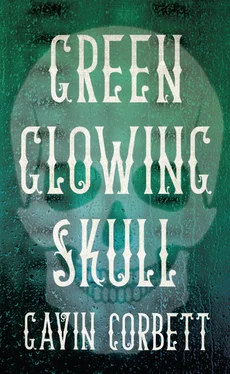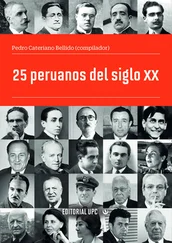And then:
‘Come on, I know you manipulated that file! I have an electronic record of when you go into what. It’s okay, Rickard. And anyway, the head of the syndicate knows what we’re about. I told him we’re chiefly a text-extraction company. This intrigues him. And he loves how Quentin Massys’s Notary’s eyes now appear to have swapped around.’
For the next six months Rickard’s job was to change the text versions of pictures that Robert found on the internet; the pictures, when opened as pictures again, would then have changed too. At the start, Rickard thought that the syndicate would soon tire of the gimmick. For the next hundred pictures that he changed he made no more effort than he had made for his first picture — he simply randomly inserted text into the code by stabbing the keyboard. But this consignment only increased the head of the syndicate’s enthusiasm for the project — he came back to Robert saying he thought the alterations ‘the work of a genius’. Deemed such, Rickard found himself taking his task more seriously. Now there were greater expectations of him, and he thought: I got lucky with one hundred and one of these pictures; what if my luck runs out, as surely, mathematically, it will over the long course ahead?
For every set of code behind each picture in the next batch he stared at his computer screen until his eyes and head throbbed with pain. He knew — or rationality told him — that there could be no making sense of the reams of Roman and Hebrew and Cyrillic characters that comprised the text-encoded binary data without knowledge of how the computer translated the binary into this gobbledegook. But then he did not want to leave his success to chance again. And so he told himself that a careful reading — again, he knew this was ridiculous — of the gobbledegook, a more thorough exposure to it, would enable him to understand how it translated back to binary, and how the binary translated to a picture.
And then a funny thing happened, four and a half thousand pictures into the project.
Plain words within the text would sometimes give a clue to the title of a picture, or who had painted the original; one day he went home knowing that the last picture he had worked on was called ‘IKB 191’. When he got home he took his Great Art Book from the shelf and looked ‘IKB 191’ up, discovering that the original had been painted by somebody called Yves Klein. The picture in the book was basically a solid block of dark blue. He knew straight away that the picture he had been looking at in text form earlier had been of a different blue to the blue of the picture in the book. He knew all this from the pattern of the code he had been combing through that day. When he went into work again the next morning he returned to the picture. He could, he knew, if he’d wanted to, have changed the picture to something near the shade of blue in the Great Art Book . He changed sections in the centre of it to a bright red instead. He understood not how he was able to know how to do this.
With every set of code now he could tell exactly what the picture looked like; fields of textual scree collected at the bottom of his mind and gathered upwards as great artworks. Not only this, he knew how the electronic renditions of the pictures — even, perhaps, something of the original versions — came together, and how they might artfully come apart; to achieve ‘X’ or ‘sigma’ effect he knew precisely what to do. He was no longer happy with randomly scrambled images; he conceived of and executed thoughtful deconstructions, though none required any great expenditure of effort. If what the head of the syndicate was seeing over in the western midlands was ‘the work of a genius’, then this, he supposed, as he raced through a day’s images, was how geniuses worked. They just understood, and they just set about. Genius! Genius! If someone had suggested to him only a few months before that he was a genius he would never have believed them. But then genius was not something that a person was born with; it was arrived at through hours and hours of practice: Mozart’s twenty thousand hours, or Mondrian’s ten thousand hours, and though Rickard had not spent ten thousand hours exposed to these encrypted pictures, perhaps he had received the equivalent in compressed form, or perhaps even had been assimilating genius itself.
‘Rickard! Rickard!’ came Robert’s voice from the muffled auditory world and the receded and blurred visual one.
‘Rickard?’ he said.
Well, he had another task for him. It was this:
Though they were some thirty thousand pictures away from completing their project for the syndicate, a Brazilian publisher and art connoisseur had seen many of the deconstructed pictures and wanted to bring out a book featuring a selection of them to coincide with the opening of the Europa Tower. The head of the syndicate had put the publisher directly in touch with Robert, who, the publisher had been led to understand, dealt vaguely with the written word. He wanted now ‘this genius’ — the head of the syndicate’s reference — responsible for the deconstructed pictures to write the introduction for the book. Because Verbiage was a company that re-purposed online text rather than generating original text, Robert insisted to Rickard, as a matter of professional justification, that they work from pre-existing sentences. These sentences he got from a website on which people had pasted examples of bad technical writing. Rickard’s own suggestion was that they used not the sentences as they read in English, but as they translated in code form.
‘Is that possible?’ he wondered aloud. ‘Can the sentences be translated to gobbledegook just like the pictures were translated to gobbledegook?’
‘A-ha’ — as in ‘Leave it with me’ — said Robert.
By the end of the next day, Robert presented Rickard with hundreds of encoded excerpts of bad technical writing. Or rather, the excerpts plus a sort of frosting of gobbledegook, as Robert explained; what was seemingly the bad technical writing translated to code was actually nonsense excess text that had accreted around the excerpts after Robert had emailed them to himself. (And indeed, there, embedded in the accretions, were the original excerpts in plain English, so to speak.)
‘So where does all this extra stuff come from?’ said Rickard.
‘I don’t know,’ said Robert.
Then: ‘From the fairies who live inside the internet.’
Rickard went to work on the accretions (he ignored the excerpts themselves) with the confidence he had gained and with the same rigour he had never ceased to apply while working on the pictures. This new project, however, seemed to take a lot more out of him than even the earliest pictures had. It was harder to say something in rearranged gobbledegook than it had been to rearrange something in rearranged gobbledegook. The point, of course, was that he would say something from what was already there, but from the beginning it was apparent that, to create something rather than deconstruct something — that was to say, to say something — he would need to draw on something extra that he had not needed to draw on for the pictures. Then he remembered how he had known how to put the patches of red into Yves Klein’s ‘IKB 191’, and how he had known how to change the tint of blue in it too, and soon after he chanced to catch — to actually read, or listen to, or in any case perceive — one of his own thoughts in the moment it took to relay across his brain, and he realised it was not even in English or any other spoken or written language. These things revealed, and with the confidence he already had, he knew he had everything he needed.
The idea of an introduction for this Brazilian publisher’s book explaining blah blah blah was soon abandoned. (Indeed so was the idea for a book, although the picture project was completed to the syndicate’s enormous satisfaction.) Quickly Rickard moved on to the possibility of notating thoughts untainted by having to be carried in a human language. Knowing he was on to something great emboldened him; his thoughts — characterised in mysterious symbols culled from online gobbledegook — became definite, brave, truthful, and finally incomprehensible to his bodily, delimited self.
Читать дальше
Конец ознакомительного отрывка
Купить книгу












